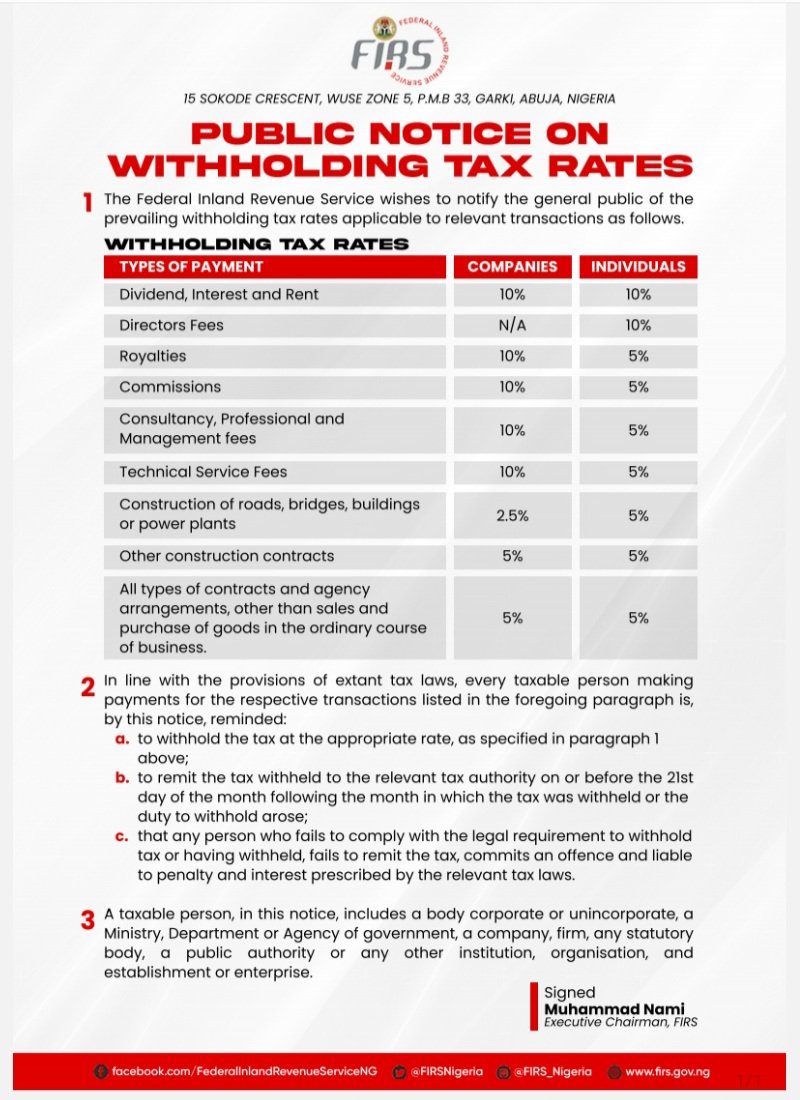
Nigerian youths who accept challenges and are ready to conquer will wholeheartedly accept my wish for them. I am one of them, not underage, not overage. So, it is also my wish for myself. Ever since I came across this powerful wish from a Nigerian educator and author, Tai Solarin, there has been no two ways for me to success than hard work, resilience and perseverance. Whether a youth or of any age, you must believe that nothing good comes easy. There is no more divine physical manna from heaven; it is rain that falls and it heralds a season for work – time to sow for the hard times to come.
“May Your Road Be Rough” was a new year simple message by Tai Solarin on January 1, 1964 to whoever cared to listen and be self-independent. Though regarded as the most famous and controversial atheist and secular humanist in African history, Tai was an intellectual epistemologist who knew the difference between pandemic lassitude amongst “a lot of” Nigerians and the paucity of chivalry in Nigerian politics. He was quite schooled on the “special” understanding of Nigerians of things and the unusual approach of their misinterpretation, especially when the media shows special interest.
That is why he carefully started his intellectual pieces of advice with “I am not cursing you; I am wishing you what I wish myself every year. I therefore repeat, may you have a hard time this year, may there be plenty of troubles for you this year!” As if sure of being misunderstood, he quickly added: “If you are not so sure what you should say back, why not just say, ‘Same to you’? I ask for no more.”
Solarin said that “our successes are conditioned by the amount of risk we are ready to take.” How many Nigerian youths are ready to follow the rough roads to success – the road of long-term plan, not the short-cut of the devil? Definitely, there are. But they are few. So, Tai concluded his 12-paragraph scholarly counsel with a note: “If, therefore, you are out in this New Year 1964, to win any target you have set for yourself, please accept my prayers and your elixir”, still repeating his heartfelt magnetic piece with: “May your road be rough!”
I took the joy to quote this glamorous wish of all ages to juxtapose the media hoax of recent event at the CHOGM in London. President Muhammadu Buhari spoke on: “Making Business Easier Between Commonwealth Countries”, where he observed that a great number of Nigerian youths believe in entitle mentality, thereby expect free money without work hard for it. A careful perusal of the speech showed that the President, after putting Nigeria’s population at a conservative estimate of 180 million, postulated that more than 60 per cent of Nigeria’s population is youths below the age of 30. He opined that a lot of the youths have not been to school. They claim that Nigeria, being an oil producing country, means wealth in abundance. Therefore, they are provoked by such belief to prefer to sit and do nothing and yet expect to get housing, healthcare and education free.
That is what has kept the media awash for the past few weeks with a lot of criticisms to the President. Some people have gone beyond their boundaries by calling names, laying abuses and giving ultimatum. But the truth remains stark. It is not the resistance of the truth that makes it anything less than it is. It is a global byword that the truth is bitter. It irritates humans. In short, how dare you call a thief a thief to his face except under security cover? Assuredly, the President did not say anything new about the Nigerian youths or the illiteracy level amongst them. It is on record that some Nigerian leaders at the state and national levels have made clearers references before. They clearly used the word “lazy” which is nowhere found in the President’s speech while in London.
At his formal declaration for presidency, Buhari had explained APC’s resolve to bring Nigeria back to the path of development by doing things differently and putting priority on protection of lives and property; pursuing economic policies for shared prosperity and immediate attention on youth employment and quality education for development, modernity and social mobility, amongst others. At the 2015 international youth day at the state house conference centre, Abuja, Buhari paid tribute to Nigerian youths for their landmark roles in making the 2015 general elections a model for democratic governance in Africa. He called them true heroes of democracy and architects of change, assuring to place high premium in tackling challenges facing them. “Young Nigerians, let me conclude by reiterating that we are very much committed to fulfilling all our campaign promises. We must all work together towards the actualization of sustainable peace and harmony to enable this administration to build an enduring legacy.” In many other fora, he had expressed the readiness of his government to uplift the youths through many initiatives.
The reactions from Nigerians over the media misrepresentation and propaganda have been divergent. A non-governmental organization, Unified Nigeria Youth Forum, (UNYF) is querying why over 80 per cent of the current cabinet members are members of the past administrations which should be blamed for the woes of the Nigerian youths. The group said that Kemi Adeosun, late Ocholi and Solomon Dalung are the only new faces in the current government. Also the National Association of Nigerian Students (NANS) feels that the challenges facing the youth are the creations of Nigerian leaders whose objective is to keep the country’s youth in perpetual servitude. The Arewa Youths Consultative Forum (AYCF) looks at the government arrangement, appointment, government-youth relationship and concluded that Nigerian leaders do not have respect for the Nigerian youths. “The youths put their lives on the line to fight against the previous government but when it comes to sharing the goodies of government, the youths are nowhere to be found”, it notes.
The Peoples Democratic Party (PDP) wonders why the President could describe the Nigerian youths who sweat on menial jobs under very strenuous conditions on the nation’s streets. The party’s national youth leader, Sunday Udeh-Okoye, in a statement in Abuja faulted the President’s comment. But a foremost PDP stalwart and minority leader in the red chambers, Godswill Akpabio, has a different view on the publicized comment. He urged Nigerians to commend the President for his “elder statesman taught”, saying that he watched the video but never heard him for a second mention the word laziness. “I urge my party member in PDP to stop this childish act and focus fact on how to win 2019”; he warned against politicizing reality, wondering why PDP members should continue fooling themselves when truth was already known.
From my own corner and concern, it is better to accept the reality so that the appropriate measure and correct solution can be made. Living in a “fool’s paradise”, methinks, is not the way of the incumbent federal government. During the two-day 2017 Nigeria’s Annual Education Conference, entitled ‘Achieving Inclusive Education through Innovative Strategies’ organized by the National Commission for Mass Education in Birnin Kebbi which led to a courtesy call on the state governor, the Minister of Education, Mallam adamu Adamu said Nigeria had about 75 million illiterates. This was publicized but it did not attract any anxiety or comment for the wailers who claim more love for Nigeria and her youth.
Interestingly too, the former Minister of State for Education now Rivers state governor, Nyesom Wike, while flagging off the 2014 International Literacy Day disclosed that the number of illiterates in Nigeria was estimated at 60 million, which is about 38% of the country’s population estimated then at 170 million.
According to the National Bureau of Statistics, adult illiteracy rate in Nigeria stands at 56.9%. This implies that about 70% of Nigerians are illiterates. The Country Comparison Index of Literacy Level in 2012 showed that Nigeria ranked 161 out of 184 countries with 66 per cent literacy rate. USAID study showed that an estimated 10 million Nigerian children are out of school.
The United Nations Educational, Scientific and Cultural Organization (UNESCO) has it that Nigeria has an estimated 40 to 45 million illiterate persons. UNESCO Country Representative Dr. Joseph Ngu at a Roundtable on “Cultivating Peace” in Celebration of 2012 International Literacy Day in Abuja categorically declared that Nigeria is one of the countries among the E9 countries where education is a problem and the only one in sub-Sahara Africa, because of its population.
Ochiaka Ugwu writing on Nigeria’s high illiteracy rate: What went wrong? in the Peoples Daily of October 5, 2015 quoted a statistics which showed that 60% of Nigerians have no qualifications at all and that 60% will still be jobless after five years from then. “Officially, 54% of Nigerians are unemployed and actual unemployment is projected to be much higher than that”, he noted.
If the United Nations’ universal definition of ‘youth’, as those persons between the ages of 15 and 24 years or that of the African Youth Charter as every person between the ages of 15 and 35 years is to be accepted for this purpose, then all estimates cannot be authenticated. Is it arguable that 99 percent of kidnappers in Nigeria are youths? Is it arguable that 99 percent of Niger Delta militants are youths? Is it arguable that 99 percent of Boko Haram insurgents are youths? Is it arguable that 99 percent of Yahoo fraudsters are youths? Is it arguable that 99 percent of Fulani herdsmen are youths? Is it arguable that 99 percent of IPBO members are youths? Is it arguable that 99 percent of drug and alcoholic addicts are youths? And is it arguable that 99 percent of almajiris are youths? If all these are unarguable, then there is another meaning for illiteracy in Nigeria.
Muhammad Ajah is an advocate of humanity, peace and good governance in Abuja. E-mail mobahawwah@yahoo.co.uk. [myad]








